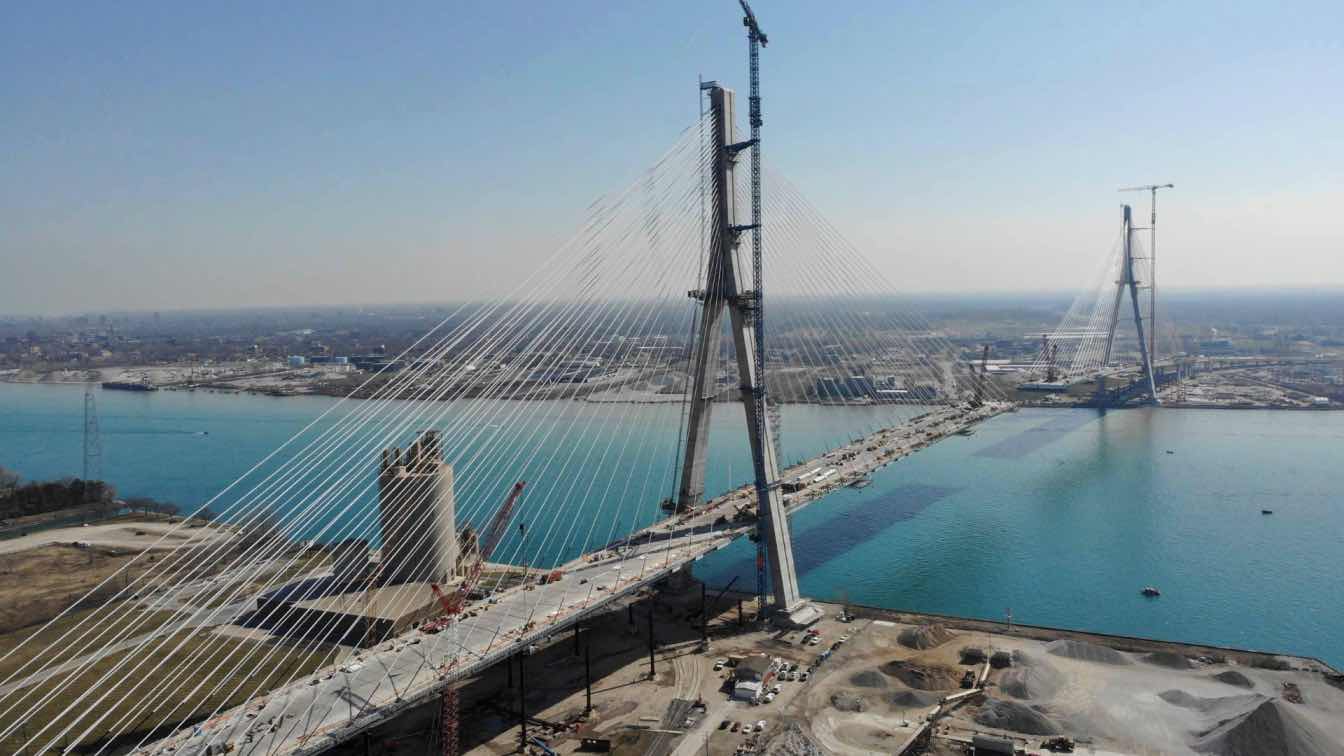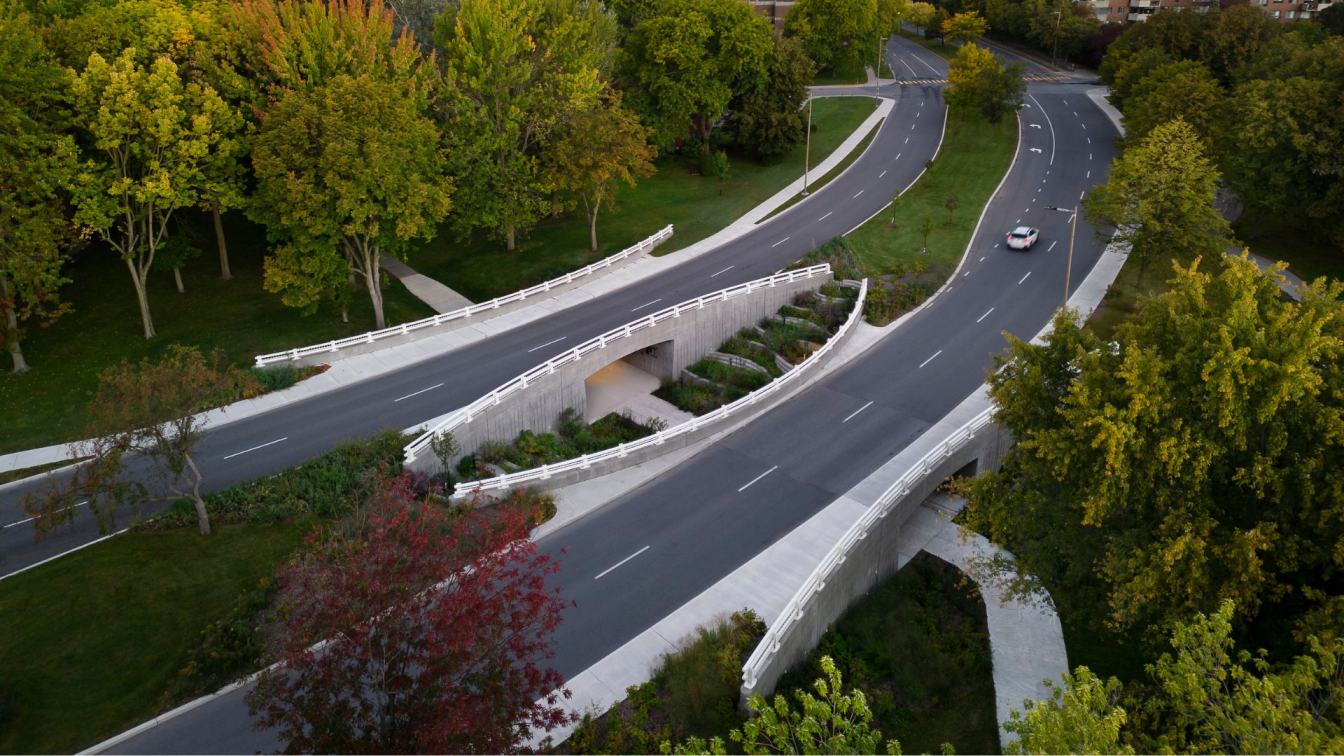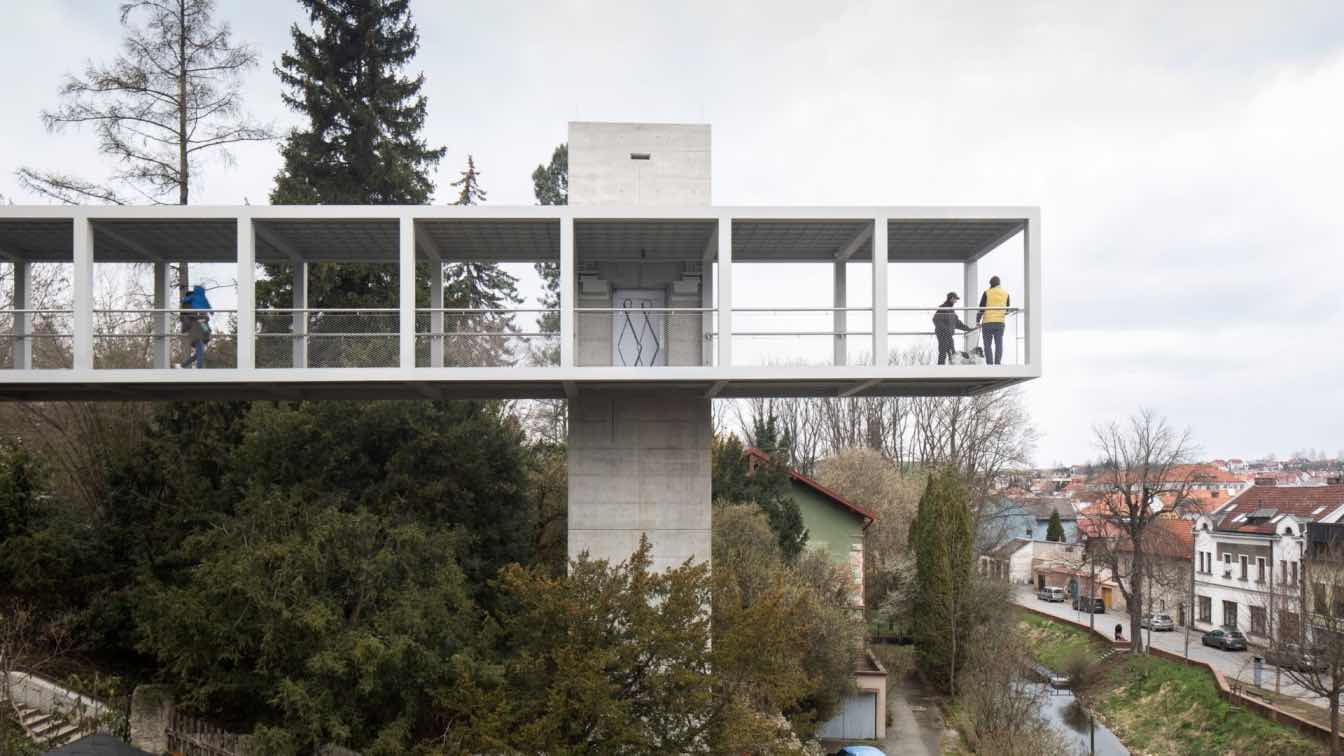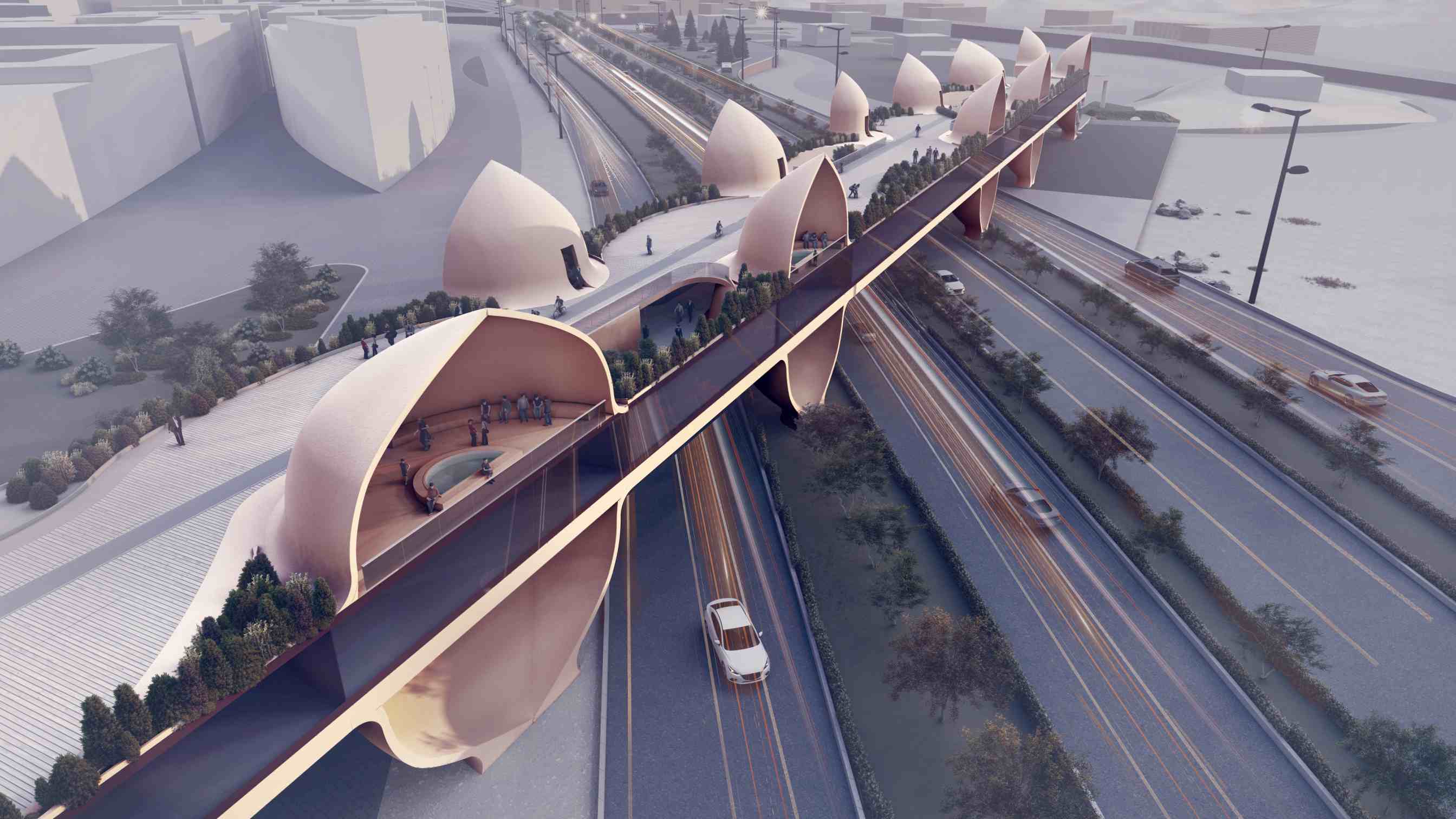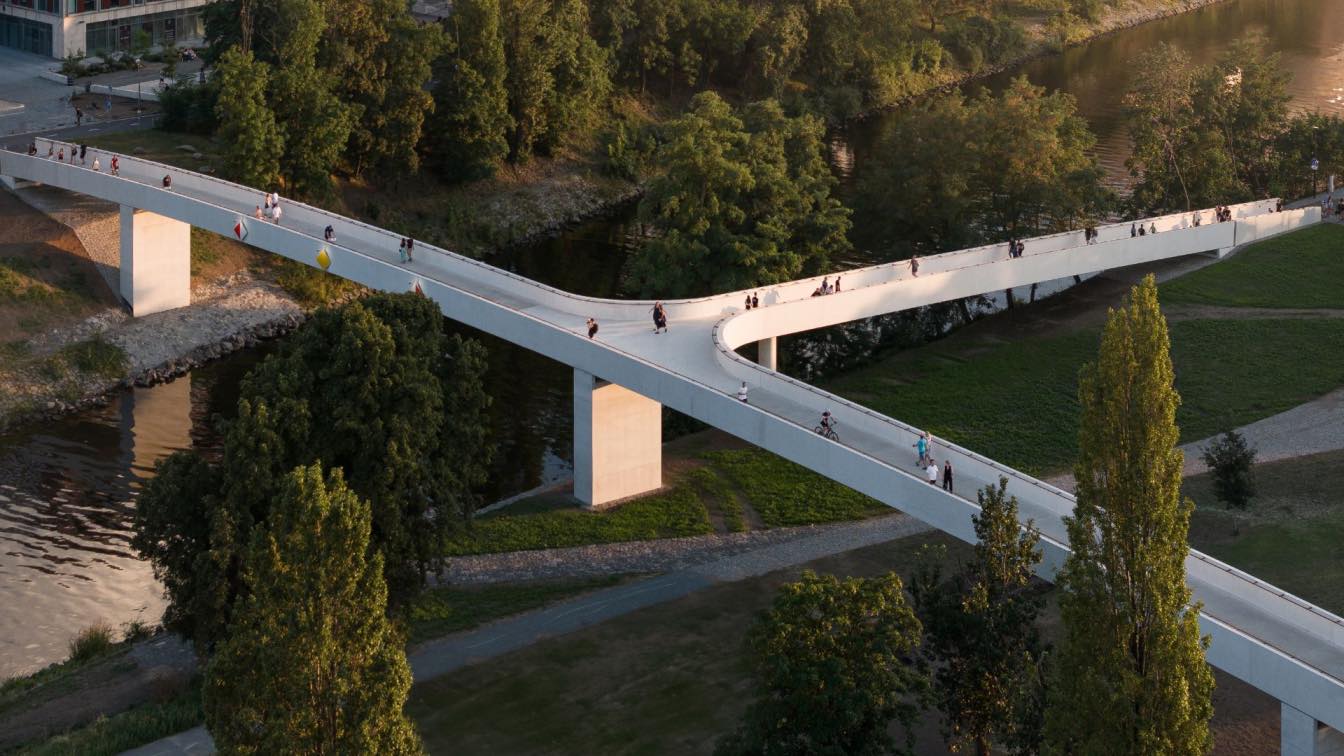The Gordie Howe International Bridge project team has begun final steps to connect the bridge deck over the Detroit River.
With the busiest year of construction currently underway, the most significant moment in the historic construction of the Gordie Howe International bridge is imminent. The long-anticipated connection of the two bridge decks is scheduled before the end of June and will officially connect the United States to Canada via Detroit and Windsor, Ontario, 46 meter above the Detroit River.
27 pre-designed deck segments averaging about 15 metres long and 37.5 metres wide have been carefully launched from either side of the river and sequentially supported from the tower by the parallel installed stay cables.
With less than 11meters to go, Bridging North America’s tireless site crews (BNA) are now making final preparations before work starts on the final segment, known as the midspan closure, one of the most exciting and critical moments in the construction of every stay cable bridge.
“This last piece is not like the others they’ve pieced together more quickly. The last section is a custom job. It will be cut to fit and partially has to be adjusted depending on what the temperature is, “said David Henderson, the CEO of project contractor, Bridging North America.
“Achieving the bridge deck connection is monumental in the progress on the Gordie Howe International Bridge project,” said Charl van Niekerk, CEO, Windsor-Detroit Bridge Authority (WDBA). “This new bridge is the physical representation of the international cooperation that exists between the neighbouring communities in Windsor and Detroit, throughout Ontario and Michigan, and across North America.”
Once connected, the bridge deck will span the distance of 853 metres (0.53 miles), making it the longest main span of any cable-stayed bridge in North America and the 10th longest in the world. It will also be the longest composite steel and concrete bridge deck for any cable-stayed bridge in the world.
The bridge is designed as a gentle curve, anchored at each bank by graceful towers. The two towers with their imposing height of 220 m, and fan-shaped arrangement of 216 cables (108 on each side) creates majestic portals that launch the bridge deck across the river. The deck floats high above the water in a smooth arch and transitions seamlessly into the side spans at either end. The side spans on each side of the river are completed by 27 pairs of stay cables and 3 pairs of ancillary piers which are fitted with tie-downs that transfer the loads directly into the ground.
“We combined engineering ingenuity and aesthetics in a unique display of elegance here,” said the Architect of the Bridge Erik Behrens (AECOM). “The aesthetic appeal of this cable-stayed bridge lays in the extreme slenderness of the deck which in combination with its stay cables provides an impression of gravity-defying lightness and transparency. The patterns of the white stay cables create ever-changing moire effects when viewed from different angles and lend the structure a beautiful kinetic and sculptural dimension,” Behrens added.
“From the outset of the project, we all had this ambition to create this landmark structure that captivates and inspires, and we put an enormous effort into the visual quality aspects of this bridge. We worked hard to conceal all utilities within the enclosed deck and tower structure and to keep its form as pure as elegant. We worked closely with our engineering colleagues, fabricators, and construction teams on every little detail and carefully mocked-up and coordinated the colours and finishes of each component,” Behrens said.
The public will have to be patient though and won’t be immediately able to experience the beauty of this new structure. There will be further work required. BNA’s site teams will first have to complete the tensioning of the stay cables, install the road surfaces, barriers, multi-use path for pedestrians and cyclists as well as other required technical and electrical systems and accessories necessary for the safe operation of the bridge.
Work is also ongoing on the finalisation of the bridge lighting systems which will add another dimension to the project. “We are looking forward to working with a lighting artist on the programming of the light shows in the coming months to turn this bridge also into a nighttime sculpture and transformational work of public art.” Architect Behrens said.
The project—which also includes customs facilities on both borders and a new interchange to connect to Interstate 75 on the U.S. side—is not expected to be completed until fall of 2025. This new six-lane bridge will provide new border crossing capacity to meet increased long-term international trade and travel demand and supposed to create new opportunities for economic growth in the wider region.
Named after the Canadian Detroit Red Wings hockey player Gordie Howe, this bridge will also be a tribute to two hockey-loving nations who share this great man’s sporting legacy. And when viewed from certain angles one might believe the form of each tower leg appears to echo the curvature of Gordie’ hockey-stick mid-slapshot – Mr. Hockey’s most powerful and feared ‘shot’ on ice.






